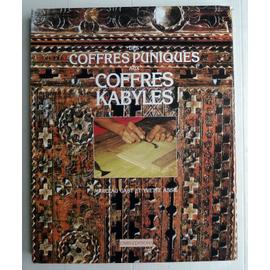 | ||
| The book I translated for a friend studying at SOAS at the end of 2010 |
On a practical level, it enables me to put the theories learned in the translation module I took at university to good use. It also gives me the opportunity to further ameliorate my French. Having studied the language formally from the age of 11, and informally before that, I still constantly strive to improve. Living just outside of Paris since 2008, having a French husband (previously boyfriend) since 2005 (as well as the built-in French inlaws that came with him), and working in a bilingual environment all help - but I do not yet consider myself to be fluent. So anything that helps to increase fluency can only be a good thing. However, this has to go hand-in-hand with intellectual or emotional reward, otherwise I wouldn't continue to do it. Otherwise, it's the same as trying to get a reluctant child to do their piano practice: there's a clearly tangible goal involved, but if their heart's not in it, it's potentially of little use. So why else?
Being an English teacher, my first love naturally lies with the English language. And as I only translate with French as the source and English as the target language, translation also selfishly allows me to indulge my love of English. There's something challenging and beautiful about trying to equate exact meanings, craft an eloquent turn of phrase, and recreate the original text's tone and effects. While this is clearly a form of intellectual development, it's also, to me, a form of spiritual development, taking me to a higher plane of description and clarity. Striking a balance between these two elements is always tricky, but like any good brainteaser, it leaves you feeling immensely satisfied once you've solved the problem by unlocking meaning.
This all makes translation sound like a very solitary activity. While indeed it can be this, thanks to many translators working alone at home, it's also tremendously collaborative, which is particularly facilitated thanks to advances in technology. As well as being able to speak to colleagues through VOIP providers such as Skype, or hold conference calls through software such as Saba, emails and online discussion fora also enable translators to bounce ideas off each other in writing, in one space. In addition, thanks to my husband being French, it's occasionally useful to be able to pick his brains too! Less facetiously, though, this all means that you don't have to feel lonely while working alone, allowing you to know that wherever you and your colleagues are in the world, and whatever time zone you work to, you can still work successfully as a team on a project. This combination of teamwork and independent discipline has its own value, too, again when it comes to developing as a person.
Translation's intrinsic value also has roots in languages' natural variegation and humans' deeply-seated affinity with rhythm and musicality. Languages all have their own individual sounds and rhythms, and that's before you even get to tonal versus atonal languages. We all respond differently to these and tend to value variation in what we hear. For this reason, it naturally follows that reading (and being able to read) texts in their original languages also delivers satisfaction. However, translators equally recognize that being able to read texts in a translated form is better than not being able to read them at all, and so are able to feel that we deliver a practical service. Beyond this, comparing translations on a critical level also brings its own enjoyment, in much the same way as listening to different versions of the same song can (and, hey, look, I spoke about this recently too).
But with applications to sit foreign language exams continuing to fall in the UK (only 43% of students were entered for a foreign language GCSE in the UK in 2010, compared to 75% in 2002), is there a danger that translation could be a dying profession? Hopefully not: Michael Gove's new curriculum plan is set to make the study of languages compulsory from the age of seven, and on top of this, rising university tuition fees could also be in the translation profession's favour, as students turn towards more practical courses that stand a greater chance of being of real use post-graduation. A quick search on the website of university applications service UCAS turns up 15 providers of translation courses available for entry in 2014, including at such prestigious universities as Cardiff and UEA. Several of these courses involve practical placements in the workplace. Further to this, the world of translation is working hard to promote itself through events such as International Translation Day, which is celebrated at the end of September each year and is supported by several major bodies, including The British Council, The London Book Fair, and The Translators Association. Launched in 2010, it focuses on debates, translator residencies, mentoring schemes, among other projects. In addition, translation prizes such as the Stephen Spender Prize continue to thrive, while taking care to include categories for children in an attempt to hook the next generation.
All of this helps to improve accessibility not only to translation as a profession but also to translated works of literature. Even if you consider that you know little about languages, chances are that you have been touched by translation. Stieg Larsson, Paulo Coelho, Elie Wiesel all, apart from being men, have one thing in common: without translators, you'd have heard of none of them.












